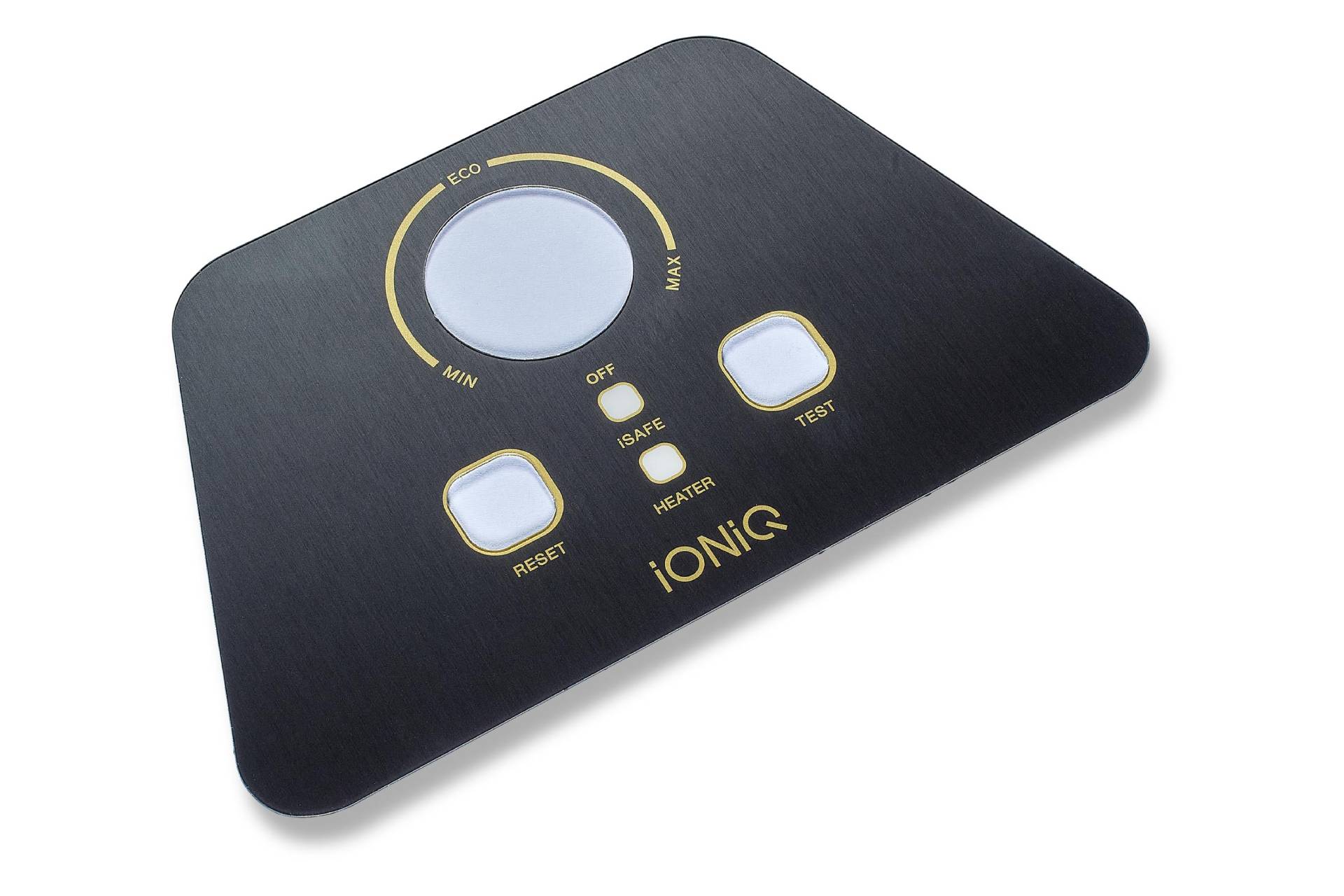Exactly How Plastic Nameplates Are Produced: A Comprehensive Guide to Their Manufacturing Refine
The manufacturing of plastic nameplates entails several precise actions, beginning with the selection of ideal materials to the final finishing touches. Each phase is essential, guaranteeing the item meets particular requirements for resilience and looks. Numerous production strategies play a substantial function in crafting these nameplates. Understanding these procedures can drop light on the intricacies behind what may seem like a simple item. What factors add to the top quality and modification of these nameplates?
Recognizing Plastic Products Used for Nameplates

The Layout Process: From Principle to Prototype
The design process for plastic nameplates begins with a clear idea that guides the overall creation. Designers collaborate with customers to specify the objective, style, and specific requirements of the nameplate. This initial phase consists of conceptualizing sessions, mapping out concepts, and picking shades and typefaces that straighten with branding goals.Once the principle is developed, developers use computer-aided layout (CAD) software application to develop thorough digital representations. These models enable visualization and modifications before relocating ahead. Feedback from stakeholders is essential during this phase, as it aids fine-tune the style to satisfy expectations.After settling the electronic model, a physical version might be generated, commonly via strategies like 3D printing. This substantial representation enables further evaluation of aesthetic appeals and functionality. Overall, the design procedure is an important action that lays the foundation for the effective production of high-grade plastic nameplates.
Cutting and Forming the Plastic
In the cutting and shaping stage of plastic nameplate manufacturing, the option of materials plays a necessary function in establishing the last product's quality and toughness (Plastic Nameplates). Numerous precision reducing strategies, such as laser cutting and CNC machining, assurance that the plastic is formed with precision and uniformity. This combination of careful product option and progressed cutting techniques is vital for creating premium nameplates

Product Choice Refine
Choosing the right product is important for producing premium plastic nameplates. Various sorts of plastics are available, each offering distinctive advantages and characteristics. Typical choices consist of acrylic, polycarbonate, and PVC. Acrylic is favored for its quality and UV resistance, making it excellent for outdoor applications. Polycarbonate, recognized for its sturdiness and impact resistance, is appropriate for atmospheres that need boosted protection. PVC is usually selected for its cost-effectiveness and adaptability in style. The choice procedure also thinks about aspects such as color, density, and surface finish, which can significantly influence the last look and capability of the nameplate. Ultimately, the picked material should line up with the intended use and visual goals of the plastic nameplate.
Precision Cutting Techniques
While selecting the ideal material prepares, precision reducing techniques play an important role fit the plastic nameplates right into their final types. Numerous approaches, consisting of laser cutting, CNC milling, and die cutting, are employed to attain precision and consistency. Laser reducing utilizes concentrated light to generate tidy edges and elaborate designs, ideal for intricate patterns. CNC milling supplies versatility by removing excess product with precision, accommodating various densities and shapes. Pass away cutting, on the other hand, enables for mass production of uniform pieces, boosting performance. Each method is picked based on the design requirements and the desired finish, guaranteeing that the final item satisfies high quality criteria and client expectations while keeping longevity and visual charm.
Printing Techniques for Customization
How can producers attain vibrant and precise designs on plastic nameplates? The response depends on different printing techniques customized for customization. Digital printing has gained appeal due to its capacity to produce elaborate layouts and high-resolution pictures straight onto plastic surface areas. This method enables quick turn-around times and marginal arrangement expenses, making it excellent for short runs and individualized orders.Screen printing continues to be one more extensively made use of method, especially for larger quantities. It entails creating a stencil and using layers of ink, causing rich colors and sturdiness. UV printing, which utilizes ultraviolet light to treat the ink, is additionally effective, giving outstanding attachment and resistance to fading.Additionally, pad printing offers flexibility for irregularly shaped nameplates, permitting detailed styles on tough surface areas. These printing approaches enable makers to fulfill varied customer needs while making certain top quality and long life in their plastic nameplate products.
Surface Treatments and Finishing Options

Quality Control Actions in Production
Guaranteeing the highest possible standards of top quality control throughout the production of plastic nameplates is crucial for keeping product integrity and consumer satisfaction. Makers carry out rigorous examination methods at numerous stages of the manufacturing process. Raw products undergo extensive testing to verify they fulfill specs for durability and shade uniformity. Throughout the molding phase, automated systems keep track of criteria such as temperature and stress to stop defects.In addition, visual inspections are performed to determine any surface area imperfections or imbalances. When the nameplates are produced, they go through useful tests, consisting of adhesion tests for published aspects and cardiovascular test for toughness. Quality control groups frequently use statistical sampling approaches to examine sets, making certain that any discrepancies from criteria are immediately dealt with. This thorough approach not only improves item high quality yet additionally fosters trust fund with customers, attesting the supplier's dedication to excellence in every nameplate created.
Packaging and Circulation of Finished Nameplates
The packaging and circulation of ended up plastic nameplates are important steps in ensuring they reach customers in perfect condition. Numerous packaging products are selected to protect the nameplates during transportation, while shipping methods are meticulously picked based upon performance and cost-effectiveness. In addition, reliable storage space remedies are executed to preserve quality until the nameplates are provided.
Product Packaging Materials Made Use Of
Picking suitable product packaging products is important to ensure their security throughout transportation when dispersing ended up plastic nameplates. Commonly used materials consist of bubble cover, foam extra padding, and cardboard boxes, all created to cushion the nameplates versus impacts and shocks. Bubble wrap offers a flexible obstacle, while foam padding guarantees that nameplates continue to be firmly in place, minimizing the risk of scrapes or breakage. Furthermore, strong cardboard boxes are utilized to have the nameplates, offering structural support and defense from external aspects. Tags may be applied to show dealing with directions or vulnerable materials, better enhancing safety and security throughout transportation. Generally, utilizing high-quality packaging materials considerably adds to the stability and discussion of the finished plastic nameplates upon arrival at their destination.
Delivering Methods Utilized
Effective circulation of completed plastic nameplates i loved this depends on numerous delivery methods that guarantee safe and prompt delivery. Companies commonly make use of courier services, products delivery, and postal solutions, depending upon the dimension, weight, and location of the bundles. For local shipments, courier services supply quick transportation, guaranteeing nameplates reach clients quickly. For bigger orders, products shipping is liked, making use of vehicles or delivery containers to move bulk quantities successfully. Postal solutions work as an economical choice for smaller sized shipments, especially for domestic deliveries. All shipping approaches focus on protective packaging to avoid damage during transportation. Tracking systems are also made use of to check deliveries, supplying customers with real-time updates and confidence regarding the standing of their orders.
Storage Space Solutions Implemented

Regularly Asked Inquiries
What Sorts Of Services Typically Make Use Of Plastic Nameplates?
Plastic nameplates are generally made use of by different companies, consisting of offices, medical facilities, manufacturing facilities, and schools. These nameplates offer vital functions such as recognition, information screen, and branding, adding to organizational performance and expert look across diverse environments.
The length of time Does the Entire Manufacturing Refine Take?
The manufacturing process duration varies based on intricacy and amount, commonly ranging from a few days to numerous weeks. Elements affecting this timeline include design approval, product availability, and production methods used by the company.
Can Plastic Nameplates Be Recycled After Use?
Plastic nameplates can be recycled, supplied they are made from recyclable products. Nonetheless, the availability of recycling programs and neighborhood guidelines might affect their recyclability. Proper disposal practices are important to ensure efficient recycling.
What Are the Ecological Influences of Plastic Nameplate Manufacturing?
The environmental impacts of plastic nameplate manufacturing consist of carbon exhausts, source deficiency, and air pollution from manufacturing procedures. Plastic Nameplates. Additionally, improper disposal adds to plastic waste, negatively impacting environments and wild animals, highlighting the demand for lasting methods
Are There Any Safety Worry About Plastic Nameplates?
Safety concerns concerning plastic nameplates largely entail potential chemical exposure throughout production and the risk of products weakening over time, which may lead to dangerous substances being launched, impacting both human wellness and the atmosphere. While numerous materials can be made use of for nameplates, plastic remains a popular selection due to its convenience and durability. In the cutting and forming phase of plastic nameplate manufacturing, the choice of materials plays an essential role in identifying the final item's top quality and durability. Picking the best material is vital for producing top notch plastic nameplates. While choosing the ideal product lays the groundwork, accuracy cutting techniques play a necessary function in shaping the plastic nameplates into their last forms. When dispersing completed plastic nameplates, selecting proper packaging materials is essential wikipedia reference to ensure their protection during transit.
Comments on “Top 5 Industries That Rely on Plastic Nameplates for Daily Operations”